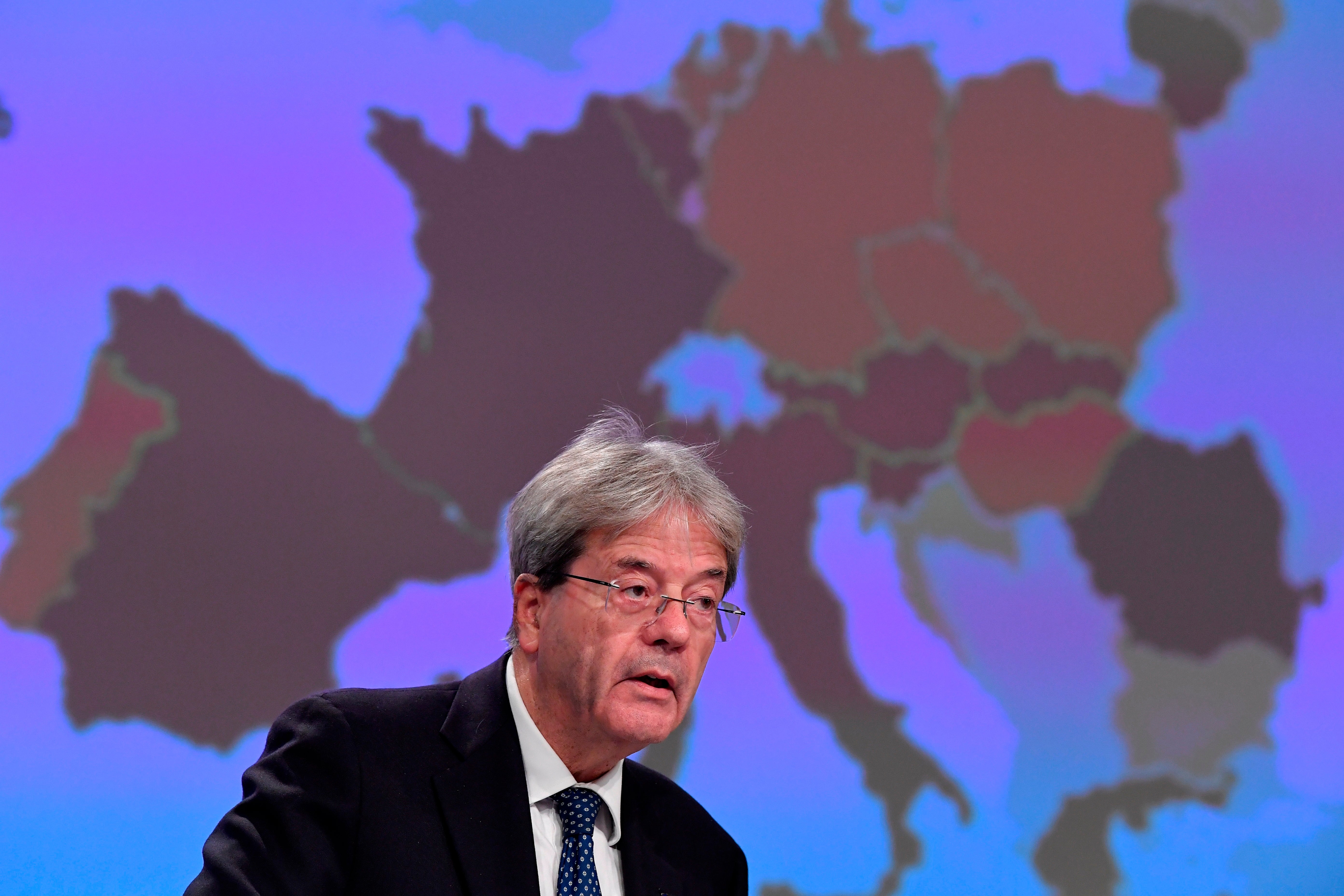EU negotiators clinch deal tying rule of law to fund access
European Union negotiators have clinched a deal that could tie the use of EU funds to democratic standards in the bloc’s member countries and unlock hundreds of billions of euros in emergency coronavirus support by the start of the year

Your support helps us to tell the story
From reproductive rights to climate change to Big Tech, The Independent is on the ground when the story is developing. Whether it's investigating the financials of Elon Musk's pro-Trump PAC or producing our latest documentary, 'The A Word', which shines a light on the American women fighting for reproductive rights, we know how important it is to parse out the facts from the messaging.
At such a critical moment in US history, we need reporters on the ground. Your donation allows us to keep sending journalists to speak to both sides of the story.
The Independent is trusted by Americans across the entire political spectrum. And unlike many other quality news outlets, we choose not to lock Americans out of our reporting and analysis with paywalls. We believe quality journalism should be available to everyone, paid for by those who can afford it.
Your support makes all the difference.European Union negotiators clinched an agreement Thursday that would impose sanctions on EU countries that fail to live up to the bloc's democratic standards. The deal could help unlock hundreds of billions of euros in emergency coronavirus support by the start of the year.
Hungary and Poland are mired in EU proceedings over concerns that their right-wing populist governments are violating European standards with laws and practices that threaten the independence of judges and the rights of journalists.
The two countries, whose economies have benefited significantly from EU funds since they joined the bloc in 2004, have vehemently opposed any attempt to condition their access to that money to the way their governments apply the rule of law.
But under the lead of Germany which holds the EU’s rotating presidency, negotiations with the European Parliament have “reached a provisional agreement on a new general regime of conditionality to protect the Union budget.”
The sanction deal would be evoked when “breaches of the principles of the rule of law in a member state affect or seriously risk affecting the sound financial management of the EU budget or the protection of the financial interests of the EU.”
“Today’s agreement is a milestone for protecting EU values. For the first time, we have established a mechanism that enables the EU to stop funding governments that disrespect our values such as the rule of law,” said Finnish EU lawmaker Petri Sarvamaa, who helped lead the process.
Greens negotiator Daniel Freund said "the rule of law in Europe is in a deep crisis. The current developments in Poland and Hungary show this in a depressing way. We must now react decisively — also with sanctions against member states. The value of this mechanism will be measured by how quickly it can be implemented.”
Under the procedure, the European Commission would establish whether any fundamental principles have been violated and then propose to trigger the sanctions. The commission, the EU’s executive arm, is responsible for proposing bloc-wide laws and ensuring that they are respected.
EU countries would then have one month — or three months in exceptional circumstances — to adopt the measures proposed by the commission by a “qualified majority” vote, which means at least 15 of the bloc's 27 nations representing at least 65% of the bloc’s 450 million people.
A country being targeted could defend itself before the commission and request a debate among EU leaders to argue its case. Should its access to funds be reduced or cut altogether, the country would still be obliged to pay its EU dues.
The agreement, which must still be officially endorsed by the bloc's 27 nations and the full EU parliament, is expected to help end a deadlock over the bloc’s next seven-year budget and a massive coronavirus recovery plan, all worth a total of around 1.8 trillion euros ($2.1 trillion). The budget is meant to take effect on Jan. 1.
Germany’s EU envoy, Michael Clauss, described Thursday's deal as “an important milestone.”
“It is time now to find agreement on the rest of the package as well. We have a historic 1.8-trillion-euro financial package on the table. With the second wave of the pandemic hitting member states hard, there is no time to lose,” he said.